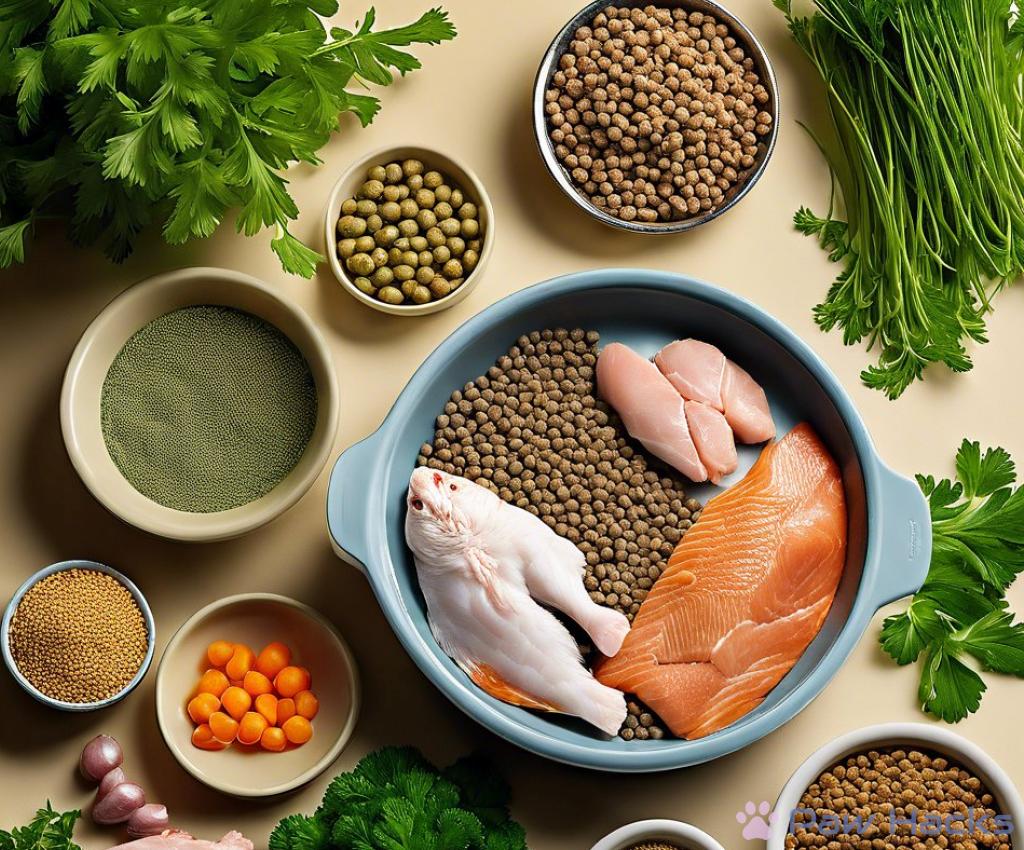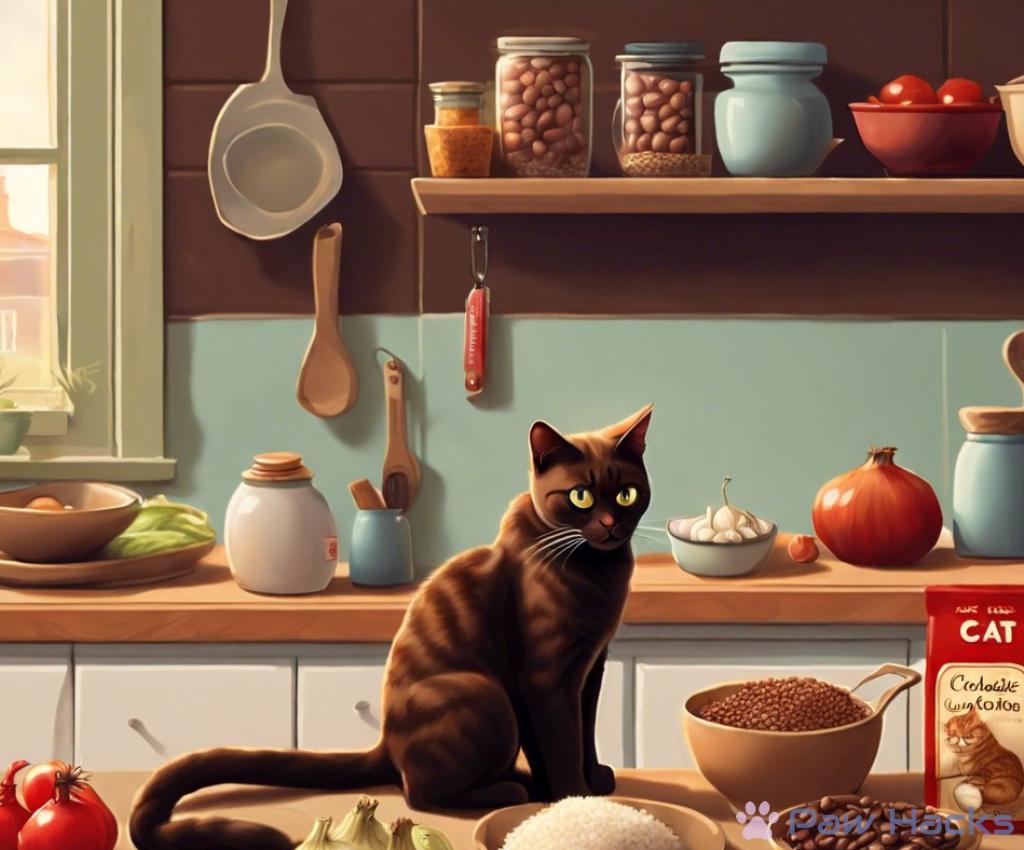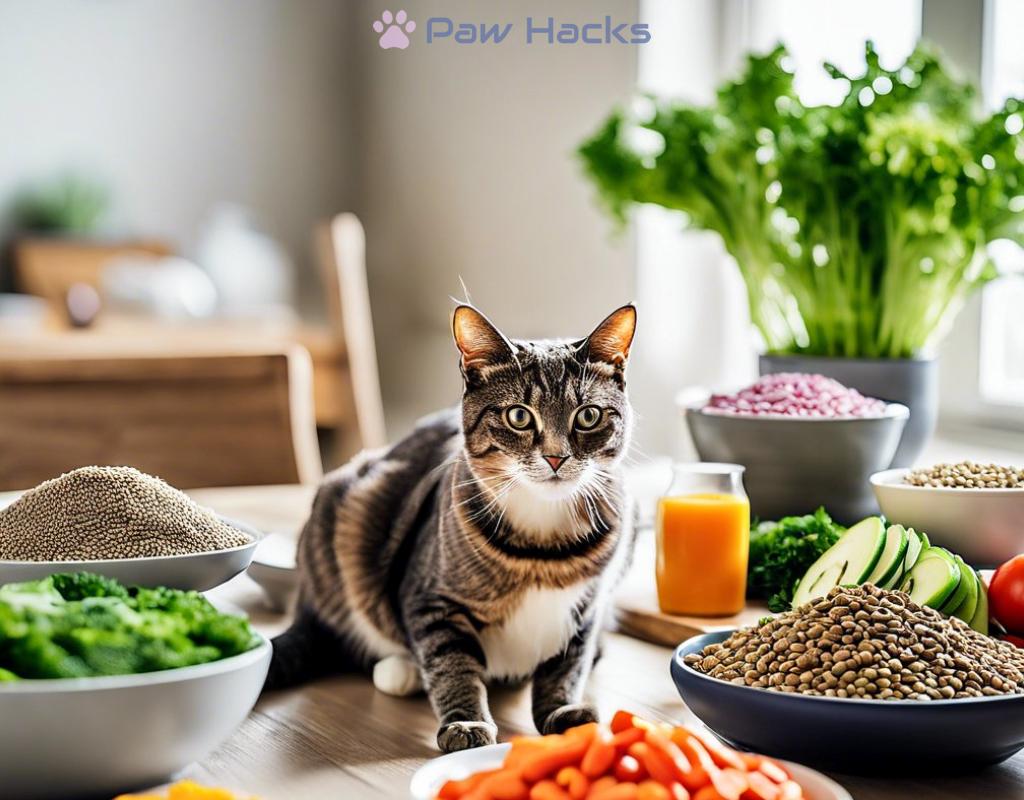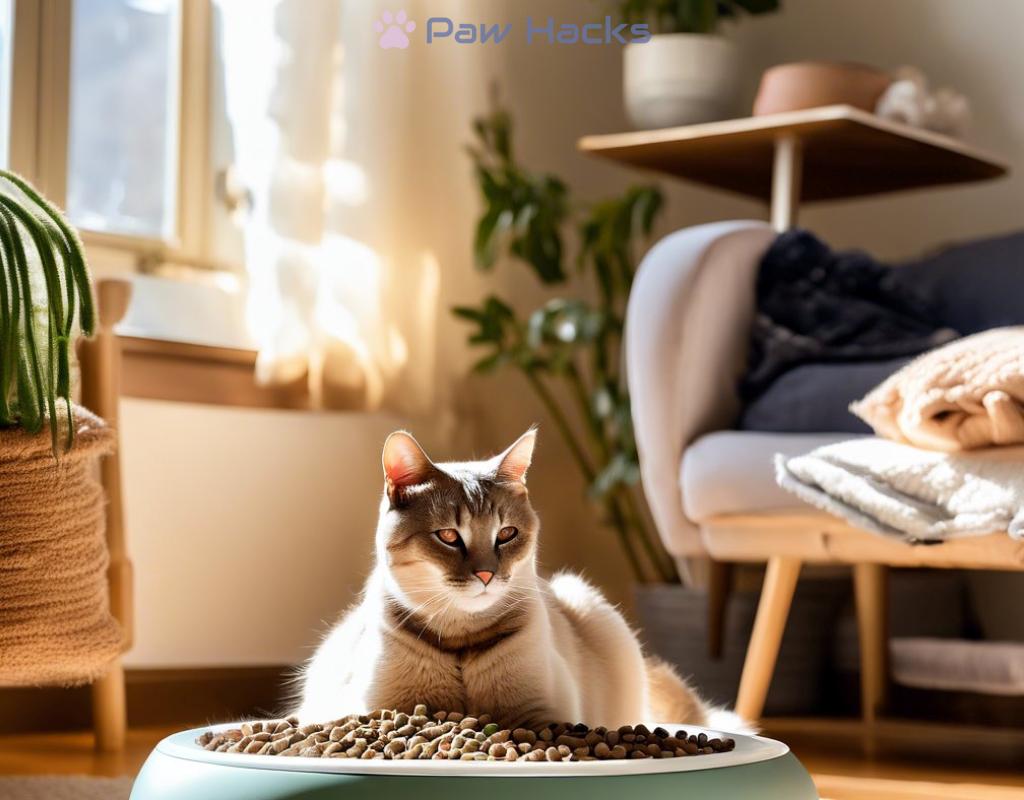Cat Hyperthyroidism Diet Tips
Nourishing Your Cat: The Best Foods for Hyperthyroidism

Hyperthyroidism is a common endocrine disorder in cats, characterized by an overproduction of thyroid hormones. This condition can lead to various health issues, including weight loss, increased appetite, and hyperactivity. Therefore, it is crucial to adjust your cat’s diet to manage its symptoms effectively. A well-balanced diet can help stabilize your cat’s health and improve its quality of life.
When selecting food for a cat with hyperthyroidism, it’s essential to focus on specific nutritional components that can help alleviate symptoms. Look for foods that are low in iodine, as excessive iodine can exacerbate the condition. Moreover, protein is vital for maintaining muscle mass, while healthy fats provide energy. Here’s a list of dietary considerations to keep in mind:
- Low Iodine Content: Choose iodine-restricted diets formulated specifically for hyperthyroid cats.
- High Protein: Opt for high-quality protein sources to support lean muscle maintenance.
- Omega-3 Fatty Acids: Foods rich in omega-3s can help reduce inflammation.
- Hydration: Ensure your cat has access to fresh water and consider wet food options to increase moisture intake.
Choosing the right food is essential for managing your cat’s hyperthyroidism. Various special diets and commercial cat foods are designed to meet the nutritional needs of hyperthyroid cats. Below is a comparison table of some recommended food options:
| Food Type | Features | Considerations |
|---|---|---|
| Prescription Diets | Formulated specifically for hyperthyroid cats, low in iodine | Requires vet prescription |
| High-Quality Wet Food | High in protein, provides hydration | Check for iodine levels |
| Homemade Diets | Customizable, can be tailored to specific needs | Must be nutritionally balanced |
Always consult your veterinarian before making any significant changes to your cat’s diet. They can provide guidance tailored to your cat’s specific health needs.
Understanding Nutritional Needs: What to Avoid in Your Cat’s Diet

When managing your cat’s hyperthyroidism, understanding what to exclude from their diet is just as crucial as knowing what to include. Certain foods can worsen the condition or interfere with treatment, making it essential for cat owners to be vigilant about dietary choices. By eliminating harmful ingredients, you can help your feline friend lead a healthier and more comfortable life.
One of the most important factors in managing hyperthyroidism is reducing iodine intake. Foods that are rich in iodine can exacerbate the symptoms of hyperthyroidism. As a result, it is vital to steer clear of certain fish and seafood, which often contain elevated levels of iodine. Additionally, many commercial cat foods may not specify the iodine content, so always check the labels carefully.
Processed foods and those high in grains can also contribute negatively to your cat’s health. These products often contain fillers that provide little nutritional value while potentially leading to weight gain and other health complications. Moreover, some cats may have sensitivities to grains, which can trigger various digestive issues. Instead, focus on providing whole, natural ingredients that are rich in nutrients without unnecessary additives.
Another area of concern is artificial additives, which can be found in many commercial pet foods. Preservatives, colorings, and flavor enhancers not only offer no health benefits but could also contribute to stress on your cat’s system. Opt for foods that are free from these substances and prioritize those with natural ingredients. By choosing a clean diet, you can help reduce the overall burden on your cat’s metabolism.
In summary, managing your cat’s hyperthyroidism involves careful attention to their diet. Avoiding high iodine foods, limiting processed and grain-based options, and steering clear of artificial additives can make a significant difference in your cat’s well-being. For tailored advice, always consult with your veterinarian to ensure the best dietary plan for your furry companion.
Homemade Diets: Crafting Safe and Healthy Meals for Your Cat
When it comes to managing your cat’s hyperthyroidism, a homemade diet can offer tailored nutrition that commercial options may not provide. Preparing meals at home allows you to control the ingredients, ensuring they are low in iodine while still meeting your cat’s specific dietary needs. This method not only supports your cat’s health but can also enhance the bond between you and your furry friend as you take an active role in their well-being.
To create a balanced homemade diet, it’s essential to include high-quality protein sources such as chicken, turkey, or lean beef. These proteins support muscle maintenance, which is particularly important for cats experiencing weight loss due to hyperthyroidism. Additionally, consider incorporating vegetables like carrots or peas, as they can provide essential vitamins without adding unnecessary iodine.
While crafting homemade meals, understanding nutritional balance is critical. A well-rounded meal should include proteins, healthy fats, and carbohydrates in appropriate ratios. Healthy fats, such as those found in fish oil, can help reduce inflammation and maintain energy levels. However, it’s vital to choose sources that are low in iodine. This balance not only keeps your cat’s energy up but also aids in overall health.
Moreover, consulting with a veterinarian or a pet nutritionist can provide valuable insights into ensuring that your homemade meals are nutritionally complete. They can guide you on appropriate supplements to include, especially since certain vitamins and minerals may be lacking in homemade diets. Always be cautious and prioritize your cat’s health by seeking professional advice.
Food safety is another crucial aspect when preparing homemade meals. Always ensure that the ingredients are fresh and handle them with care to prevent contamination. Cooking meats thoroughly is essential to eliminate harmful bacteria, and using clean utensils will help maintain hygiene.
Before introducing any new ingredients or meals into your cat’s diet, it’s advisable to start slowly and monitor your cat’s reaction. Look for any signs of digestive upset or allergic reactions, and adjust the diet accordingly. By being attentive and responsive to your cat’s needs, you can create a safe and enjoyable eating experience.
The Role of Supplements: Boosting Your Cat’s Health Naturally
Managing your cat’s hyperthyroidism through diet is vital, but adding the right supplements can further enhance their overall health. Supplements can provide essential nutrients that may be lacking in their food, helping to support their thyroid function and overall well-being. However, it’s essential to choose supplements carefully, as not all are suitable for cats with hyperthyroidism. Let’s delve into the types of supplements that can be beneficial and how to integrate them into your cat’s diet effectively.
When considering supplements, it’s vital to focus on those that can help manage symptoms and support overall health. Below are some recommended supplements for cats suffering from hyperthyroidism:
- Omega-3 Fatty Acids: These can help reduce inflammation and support cardiovascular health.
- Vitamin E: An antioxidant that aids in protecting cells from damage.
- Taurine: An essential amino acid that supports heart health and vision.
- Probiotics: These can help maintain gut health and improve digestion, especially if your cat is on a special diet.
Incorporating these supplements can greatly benefit your cat’s health, but it’s crucial to consult with your veterinarian to determine the appropriate dosages and forms.
Introducing supplements to your cat’s diet should be done gradually to monitor their tolerance and effectiveness. Here are some tips to ensure a smooth transition:
- Consult Your Vet: Always discuss with your vet before starting any new supplements.
- Start Slowly: Begin with half the recommended dose and gradually increase it over a week.
- Observe Your Cat: Watch for any changes in behavior, digestion, or energy levels.
- Mix with Food: To make it easier for your cat to consume, consider mixing powdered supplements with their food.
By following these steps, you can safely introduce beneficial supplements into your cat’s diet, contributing to their health management.
Creating a comprehensive health plan for your hyperthyroid cat involves not only selecting the right foods but also incorporating effective supplements. This combination can lead to improved energy levels, better weight management, and overall enhanced quality of life. It’s essential to maintain regular vet check-ups to assess your cat’s health status and adjust dietary and supplement plans as necessary. Ultimately, a well-rounded approach can significantly aid in managing hyperthyroidism and keep your feline friend thriving.
Feeding Schedule Strategies: How to Manage Your Cat’s Eating Habits
Establishing a thoughtful feeding schedule is essential for cats with hyperthyroidism. These cats often experience increased appetite and weight loss, which can complicate their eating habits. By adhering to a structured feeding routine, you can help manage their condition while ensuring they receive the appropriate nutrition. A consistent schedule not only regulates their food intake but also contributes to their overall well-being.
For cats with hyperthyroidism, frequent small meals throughout the day can be more beneficial than one or two larger meals. This approach helps stabilize their energy levels and prevents overeating, which is particularly important given their heightened appetite. Feeding your cat three to four times daily can aid in keeping their metabolism balanced and ensure they are consuming the right amount of food without excess. This strategy also allows for monitoring their intake and adjusting as necessary, based on their response to the diet.
Creating a routine around feeding times can provide a sense of security for your cat. Cats thrive on consistency, and knowing when to expect meals can alleviate anxiety. Establish a reliable schedule by feeding your cat at the same times each day. This not only helps regulate their digestive system but also creates a comforting environment for your feline companion. Over time, your cat will learn to anticipate mealtime, which can improve their overall mood and behavior.
While following a feeding schedule, it’s crucial to monitor your cat’s weight and overall health. Hyperthyroid cats may need adjustments in their portion sizes depending on their weight changes and energy levels. Regular weigh-ins at the veterinarian can help you determine if you need to increase or decrease their food intake. Additionally, keep an eye on their appetite—if they are consistently finishing their meals or showing signs of hunger between feedings, it may be time to reassess the portions. Being proactive in this aspect can help manage their hyperthyroidism effectively.
Share this content:



